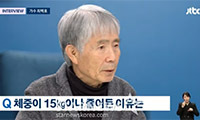SEOUL — Special attention is being paid to the death of a South Korean student, who was hit by a commuter train while trying to save a drunken Japanese man who had fallen off a crowded subway platform in Tokyo. Many hope that the legacy of his life can help resolve lingering diplomatic issues between South Korea and Japan.
Lee Soo-hyon, a Korean University senior who studied Japanese in Tokyo, was killed on Jan. 26 while trying to lift the unconscious man from the track. Lee, the drunken man and Shiro Sekine, a 47-year-old cameraman from Yokohama, who was also trying to help, were all killed.
The 26-year-old Korean’s heroic actions and tragic death made front-page headlines in both Korea and Japan. Prime Minister Yoshiro Mori attended a funeral service held for him in Tokyo and said he hoped the death would serve as an example to Japan’s younger generation.
Acting on these sentiments, South Korean Foreign Minister Lee Joung-binn called his Japanese counterpart Yohei Kono on Feb. 14 and expressed his hope that Lee’s personal sacrifice could be helpful in deepening bilateral friendship and trust between the two countries.
His remarks drew attention since touchy issues have long kept the neighbors from developing sound ties. The most frequent disagreements are those over the granting of local suffrage to Japan’s large Korean population, the portrayal of Japanese colonial rule of Korea in school textbooks and conflicting sovereignty claims over a group of small islets in waters between the two nations.
"Lee’s death has affected bilateral diplomatic affairs," a Seoulite said Feb. 19. "We hope the death will be an important momentum toward resolving bilateral diplomatic obstacles."
Although Japan has not issued an official response to Foreign Minister Lee’s remarks, Lee was right to take the initiative and look for a solution to the issues, he said.
However, some diplomatic experts feel that although the death clearly provided the Japanese with an opportunity to reconsider their dealings with Koreans, it would not directly affect the resolution of tricky diplomatic issues.
While many papers brought up the fact that Lee’s grandfather had also died in Japan as a slave laborer who was brought over during World War II, other Japanese media warned that the grandson’s death should not be used for political purposes.
At any rate, the death could be addressed in the third Korea-Japan ministerial meeting in Japan, possibly next month. Both sides should address the yearlong diplomatic issues, they noted.
Most South Koreans hope Lee’s death also makes the co-hosting of the 2002 World Cup soccer finals by Japan and Korea more successful and meaningful.
In related developments, the Pusan chapter of the ruling Millennium Democratic Party issued a statement on Jan. 31, calling for his "heroic death" to be remembered in both countries’ textbooks as a tribute to his heroism.
Prior to the Minister Lee’s remarks, Japanese Prime Minister Yoshiro Mori also said the student’s courageous death should be taught in Japanese schools.
스마터리빙
more [ 건강]
[ 건강]이제 혈관 건강도 챙기자!
[현대해운]우리 눈에 보이지 않기 때문에 혈관 건강을 챙기는 것은 결코 쉽지 않은데요. 여러분은 혈관 건강을 유지하기 위해 어떤 노력을 하시나요?
 [ 건강]
[ 건강]내 몸이 건강해지는 과일궁합
 [ 라이프]
[ 라이프]벌레야 물럿거라! 천연 해충제 만들기
 [ 건강]
[ 건강]혈압 낮추는데 좋은 식품
[현대해운]혈관 건강은 주로 노화가 진행되면서 지켜야 할 문제라고 인식되어 왔습니다. 최근 생활 패턴과 식생활의 변화로 혈관의 노화 진행이 빨라지고
사람·사람들
more
[한인단체 신년 인터뷰] KYCC 송정호 관장… “지역사회 위한 종합 서비스 강화”
LA 한인타운 대표 비영리단체 한인타운청소년회관(KYCC)의 송정호 관장은 “지금 우리가 하는 일은 커뮤니티 ‘니즈’가 있기 때문에 존재한다”…

[한인단체 신년 인터뷰] LA 평통 장병우 회장… “본연 역할로 한반도 평화 실질 기여”
민주평화통일자문회의 LA협의회(이하 LA 평통) 장병우 회장은 6일 본보와의 신년 인터뷰에서 붉은 말의 해인 병오년 새해를 맞아 신년 화두로 …
워싱턴주에 첫 한인 시의장
워싱턴주에서 첫 한인 시의회 의장이 탄생했다. 제이슨 문(한국명 문태원) 머킬티오 시의원이 새해 들어 시의장으로 선출되며 또 하나의 중책을 맡…
국회 방문단 대한인국민회 방문
윤후덕·이해식·김한규 의원과 조오섭 국회의장 비서실장 등 10여 명의 한국 국회방문단이 지난 5일 LA를 찾아 로즈데일 묘지와 국민회관 등 미…
[한인단체 신년 인터뷰] 명원식 파바월드 회장… …
“한인 차세대들이 바르게 자랄 수 있는 토대를 만드는 것이 제가 파바월드의 회장으로 존재하는 유일한 이유입니다”한인사회의 대표적 청소년 봉사 …
많이 본 기사
- 도피성출국 김경, 귀국 4시간만에 경찰로…강선우 1억의혹 조사
- 트럼프의 ‘흑역사 지우기’?…국립박물관서 잇달아 탄핵소추 삭제
- 이스라엘, 트럼프 대이란 군사작전 가능성에 경계태세 돌입
- 대북대화 ‘바늘구멍’ 뚫던 중 변수 돌출…靑 ‘무인기 사태’ 주시
- 이란 대통령 “美·이스라엘이 혼란 조장, 폭도가 사회 파괴”
- 이란 시위 사망자 폭증… “2천명 넘게 숨졌을 가능성도”
- 최백호, 핼쑥한 얼굴로 등장 “호흡기 병으로 15kg 빠져”
- “트럼프, 이란 군사타격 선택지 보고받아…최종결정 고심중”
- 박나래 갑질 논란, 새 국면..前매니저 거짓말 정황→오열 녹취록
- “트럼프의 그린란드 위협, 소련의 동맹 침공 역사 소환”
- 트럼프 “美가 베네수 보호…이젠 베네수→쿠바 석유·돈 안갈것”
- 美방문 통상본부장 “쿠팡 문제, 통상·외교 이슈와 분리돼야”
- 이강인 주전 파란불 ‘경쟁자 한 명 떠난다’... 아스널, ‘PSG 특급 재능’ 바르콜라 영입 근접
- ‘날벼락’ 김혜성 WBC 사이판 가 있는데→LAD 갑작스러운 ‘경쟁자 2명 영입 확정’ 주전 경쟁 더 험난해지나
- 美, ‘中드론’ 제한조치 철회… “4월 미중회담 앞두고 긴장완화”
- 트럼프 “내놔라” 그린란드 “나간다”…딜레마 빠진 덴마크
- ‘돌돌싱’ 이지현, 두 아이와 韓 떠났다.. “미국에서 공부”
- 美 식이지침 포함된 김치… ‘마이크로바이옴’ 건강에 무슨 역할?
- [특파원 시선] 트럼프를 보며 ‘마석… 3
- ‘트럼프 간판’ 싫어서…케네디센터 5… 1
- “교황청, 美대사 불러 막판까지 ‘마… 1
- 카리브해 ‘트럼프 눈독’ 속 멕시코 유조선 쿠바로 입항
- 작년 한국의 1인당 GDP 3만6천달러 턱걸이한 듯…3년 만에 뒷걸음
- 美, 미군 공격한 시리아 IS에 대규모 보복 공습
- “손흥민 제발 돌아와 줘” 단기 임대론 또 급부상... ‘14위 추락’ 토트넘 위기, 에이스 쿠두스마저 3개월 아웃
- 李대통령 “민간 무인기 사실이면 중대… 2
- ‘ICE총격’에 주말 미 전역 시위…… 2
- 김여정 “명백한건 한국발 무인기의 영… 1
- 트럼프 “이란, 자유 바라보고 있다…미 도울 준비 돼있어”
- 션, ♥정혜영 쏙 빼닮은 미모의 막내딸 공개.. “주위에서 배우시키라고 해”
- 트럼프, 중간선거 앞 민심공약…카드이자 “바가지” 제한
- 네타냐후 “美 군사원조 의존 10년내 단계적 축소 원해”
- 美 “베네수 원유 판매금 美계좌 예치… 1
- 이란 반정부 시위 격화…당국 “참여하면 누구든 사형”
- 젠슨 황 “AI종말론, 사회에 해악… ‘AI 안전’ 투자조차 위축시켜”
- 軍 “북한 자극 의도 없다…민간 무인기 가능성 철저히 조사”
- 송혜교, 한 해의 시작에서.. “마지막 출근”
- 머스크 “X 알고리즘 일주일뒤 전면 공개…4주마다 업데이트”
- 그린란드 정당들 “미국인도, 덴마크인도 되고 싶지 않다”
- 김민재 “EPL 안 가요” 첼시 450억 제안 거절 ‘속사정은?’
- ‘中 절망’ 안세영 우승 막을 ‘유일 천적’, 이유도 모르는 ‘충격 기권’... “미리보는 결승이었는데”
- [CES 결산] 화면 넘어 일상으로…실물AI가 열어젖힌 로봇·자율주행 시대
- 장원영 웃고 안성재 울린 ‘두쫀쿠’ 열풍..뭐길래?
- “美, 이란 공격 방안 예비 논의…대규모 공습 선택지에”
- [르포] 韓근로자 구금사태 후 다시 활기 찾는 조지아… “상처는 여전”
- ‘완벽 AS+평점 8.1’ 황희찬 맹활약, 울버햄튼 FA컵 생존... 슈르즈베리 6-1 대파→32강 진출
- 서정일 미주총연 회장 취임 “미주한인 법적권익 보호”
- 피겨 차준환 “장비·발목 문제 수습…올림픽서 감동 무대 선사”
1/5지식톡

-
 미 육군 사관학교 West Poin…
0
미 육군 사관학교 West Poin…
0https://youtu.be/SxD8cEhNV6Q연락처:wpkapca@gmail.comJohn Choi: 714-716-6414West Point 합격증을 받으셨나요?미 육군사관학교 West Point 학부모 모…
-
 ☝️해외에서도 가능한 한국어 선생님…
0
☝️해외에서도 가능한 한국어 선생님…
0이 영상 하나면 충분합니다!♥️상담신청문의♥️☝️ 문의 폭주로 '선착순 상담'만 진행합니다.☎️ : 02-6213-9094✨카카오톡ID : @GOODEDU77 (@골뱅이 꼭 붙여주셔야합니다…
-
 테슬라 자동차 시트커버 장착
0
테슬라 자동차 시트커버 장착
0테슬라 시트커버, 사놓고 아직 못 씌우셨죠?장착이 생각보다 쉽지 않습니다.20년 경력 전문가에게 맡기세요 — 깔끔하고 딱 맞게 장착해드립니다!장착비용:앞좌석: $40뒷좌석: $60앞·뒷좌석 …
-
 식당용 부탄가스
0
식당용 부탄가스
0식당용 부탄가스 홀세일 합니다 로스앤젤레스 다운타운 픽업 가능 안녕 하세요?강아지 & 고양이 모든 애완동물 / 반려동물 식품 & 모든 애완동물/반려동물 관련 제품들 전문적으로 홀세일/취급하는 회사 입니다 100% …
-
 ACSL 국제 컴퓨터 과학 대회, …
0
ACSL 국제 컴퓨터 과학 대회, …
0웹사이트 : www.eduspot.co.kr 카카오톡 상담하기 : https://pf.kakao.com/_BEQWxb블로그 : https://blog.naver.com/eduspotmain안녕하세요, 에듀스팟입니다…
케이타운 1번가
오피니언

무분별 이민 단속이 불러온 비극

무면허 건축업자 피해 근절돼야
 메건 매카들 워싱턴포스트 칼럼니스트
메건 매카들 워싱턴포스트 칼럼니스트 [메건 매카들 칼럼] 마두로는 체포했지만… 베네수엘라 석유 생산 회복은?
 김미선 서북미문인협회 회장시인
김미선 서북미문인협회 회장시인 [한국춘추] 새해, 북방의 한국인을 생각하며
 김인자 시인·수필가
김인자 시인·수필가 [금요단상] 2026년을 맞이하며
 최형욱 / 서울경제 논설위원
최형욱 / 서울경제 논설위원 [만화경] 선거용 볼모 된 새만금
 최호근 / 고려대 사학과 교수
최호근 / 고려대 사학과 교수 [역사속 하루] 1938년 1월 3일 소아마비극복재단 출범
 이상희 UC 리버사이드 교수 인류학
이상희 UC 리버사이드 교수 인류학 오렌지 상자와 함께하는 2026년
 오세정 서울대 물리천문학부 명예교수·전 총장
오세정 서울대 물리천문학부 명예교수·전 총장 [오세정 칼럼] 병오년 새해, 한국의 과제
1/3지사별 뉴스

“2세 아동도 무상교육”⋯ 맘다니 1호 무상정책 시동
뉴욕시가 앞으로 모든 2세 아동을 대상으로 무상 보육을 제공키로 했다.부자 증세, 임대료 동결, 무상 보육, 무상 버스 등의 공약으로 돌풍을 …
연방하원, 오바마케어 보조확대 3년 연장안 통과

워싱턴 지역 ‘연방정부 일자리’ 7만2천여개 사라져
지난해 워싱턴 지역에서 총 7만2천개 이상의 연방정부 관련 일자리가 없어진 것으로 나타났다.연방 노동통계국(BLS)이 7일 발표한 실업률 자료…
오바마케어 보험료 납부 ‘대혼란’

포틀랜드서 또 이민당국 요원이 총격…2명 병원 이송
연방 이민 당국 요원이 가한 총격으로 사람이 다치는 사건이 또다시 발생했다.8일 AP통신과 ABC 방송 등에 따르면 오리건주 포틀랜드 경찰은 …
살림으로 뿌리내리다- 테이크루트 안미정 대표의 요리 이야기 (9)



















































.png)


댓글 안에 당신의 성숙함도 담아 주세요.
'오늘의 한마디'는 기사에 대하여 자신의 생각을 말하고 남의 생각을 들으며 서로 다양한 의견을 나누는 공간입니다. 그러나 간혹 불건전한 내용을 올리시는 분들이 계셔서 건전한 인터넷문화 정착을 위해 아래와 같은 운영원칙을 적용합니다.
자체 모니터링을 통해 아래에 해당하는 내용이 포함된 댓글이 발견되면 예고없이 삭제 조치를 하겠습니다.
불건전한 댓글을 올리거나, 이름에 비속어 및 상대방의 불쾌감을 주는 단어를 사용, 유명인 또는 특정 일반인을 사칭하는 경우 이용에 대한 차단 제재를 받을 수 있습니다. 차단될 경우, 일주일간 댓글을 달수 없게 됩니다.
명예훼손, 개인정보 유출, 욕설 등 법률에 위반되는 댓글은 관계 법령에 의거 민형사상 처벌을 받을 수 있으니 이용에 주의를 부탁드립니다.
Close
x